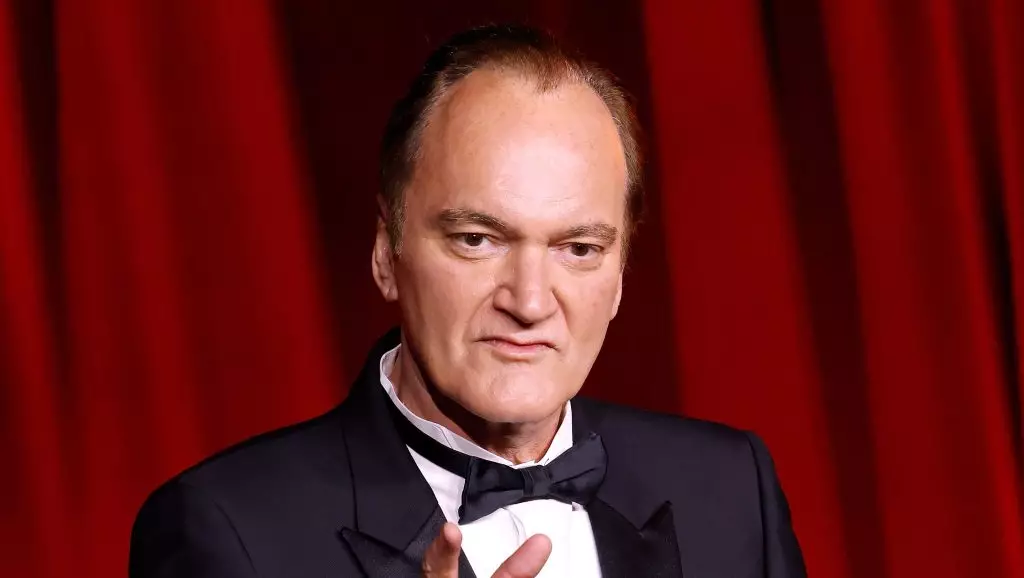Quentin Tarantino, the filmmaker renowned for revitalizing American cinema with his bold storytelling and distinctive style, recently made waves by nixing what was supposed to be his swan song—*The Movie Critic*. As much as this decision initially appeared as a typical case of artistic perfectionism or grandiose retirement plans, it beckons a deeper reflection about the current state of creative integrity and the pitfalls of genre fatigue. Tarantino’s retreat isn’t merely about losing interest; it underscores a broader crisis—a filmmaker’s struggle to connect with the very stories he claims to cherish.
Many viewers and industry insiders admired the initial announcement that Tarantino would conclude his career with a final film. The narrative seemed poetic: a director who once thrived on subverting expectations now confronting the challenge of ending on a high note. However, beneath this romanticized ideal lies a stark reality—the disconnect between a creator’s lofty ambitions and the pragmatic complications of filmmaking. Tarantino’s candid explanation reveals a man disillusioned with his own project. His admission that pre-production felt devoid of excitement suggests a profound malaise, a waning of creative spark, or perhaps, an acknowledgment of the difficulty in crafting a compelling story about a profession nobody finds intriguing anymore.
This reluctance to move forward reflects a critical truth: even the most celebrated artists are not immune to creative burnout. Tarantino’s hesitation signals that the once-electric passion for storytelling is waning, replaced by a cautious reevaluation of what works and what doesn’t. His decision to shelve *The Movie Critic* speaks to the importance of authenticity—acknowledging when a project no longer aligns with personal enthusiasm is an act of integrity, yet it also highlights the inherent challenges of maintaining artistic vitality in an industry driven by spectacle.
The Fallibility of Self-Perception and Artistic Risk
Initially, Tarantino saw *The Movie Critic* as an ambitious experiment—a challenge to elevate the mundane to art by focusing on arguably the least glamorous profession. His self-imposed challenge underscores a curious paradox: striving to make the history’s most dull vocation compelling. Yet, this very premise may have been Tarantino’s trap. When a director attempts to reframe the boring into the captivating, they risk undermining their own credibility if the execution falters. Tarantino’s candidness about not being “that excited” hints at a deeper self-awareness—maybe a recognition that some ideas, no matter how intellectually stimulating, don’t translate into engaging cinema.
Furthermore, his statement about who would want to watch a movie about a critic is telling. While Tarantino often leans into provocative titles and themes, *The Movie Critic* seemed to lack the visceral appeal or cultural relevance that his earlier works thrived upon. This raises questions about creative risk-taking—sometimes, even with the best intentions, a director may pursue a project that doesn’t resonate beyond intellectual interest. Tarantino’s honesty about the project’s shortcomings reveals that he values genuine passion over superficial spectacle, a stance that, paradoxically, might limit mainstream appeal but preserve artistic authenticity.
The decision to abandon the project could also be interpreted as a refusal to churn out formulaic content simply to meet industry expectations or contractual obligations. It reflects a libertarian stance toward artistry—if the process isn’t exciting or meaningful, why force it? Tarantino’s willingness to back away from his own work underscores that integrity sometimes means saying no, even if it means disappointing fans or leaving unfinished ideas behind. His choice emphasizes that artistry isn’t about quantity or legacy alone, but about staying true to oneself, even at the risk of undermining a carefully crafted reputation.
The Broader Implications for Hollywood and Creative Culture
Tarantino’s retreat offers a telling commentary on Hollywood’s obsession with branding, sequels, and safe bets. After teasing *The Movie Critic* as a potential farewell, the filmmaker’s sudden change of heart exemplifies how commercial interests and creative fatigue often clash. The industry’s push for lucrative franchises can drown out the more subtle, meaningful storytelling that artists like Tarantino cherish. His unwillingness to push forward suggests a maturing skepticism toward the system—rejecting the notion that every idea must be turned into a blockbuster or franchise.
Moreover, his focus on making a film about “the most boring profession” hints at a broader critique of societal disinterest in critical thinking and the arts. The decline of genuine intellectual engagement—whether with film, literature, or politics—mirrors in Tarantino’s reluctance. His effort to elevate a mundane profession to art, though noble, confronts the harsh reality of modern audiences’ distracted consumption. This disconnect underscores a cultural shift: as entertainment becomes more homogenized, true innovation or introspection struggles to find fertile ground.
Finally, Tarantino’s decision serves as a subtle reminder that even the most talented creators are vulnerable to the corrosive effects of burnout and disillusionment. It warns aspiring artists that integrity demands honesty, even when it means walking away or rewriting one’s own narrative. Rather than viewing this as a failure, it should be seen as a courageous embrace of realism—a recognition that authenticity and passion are worth more than the illusion of a perfect closure.


Leave a Reply